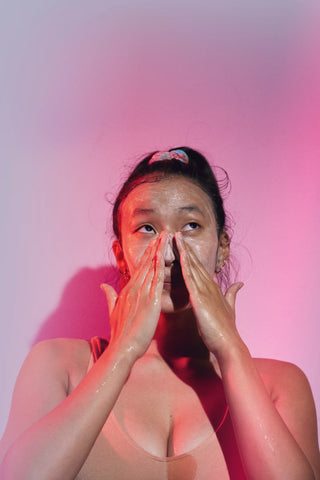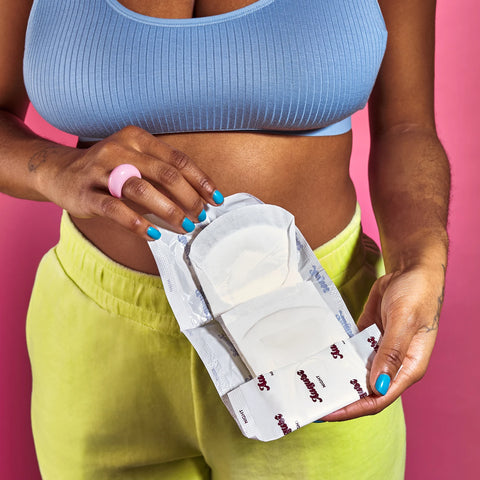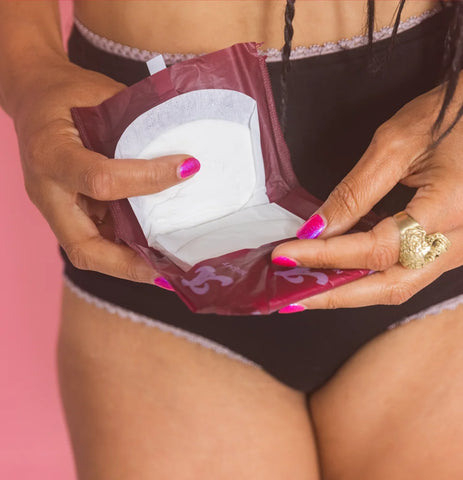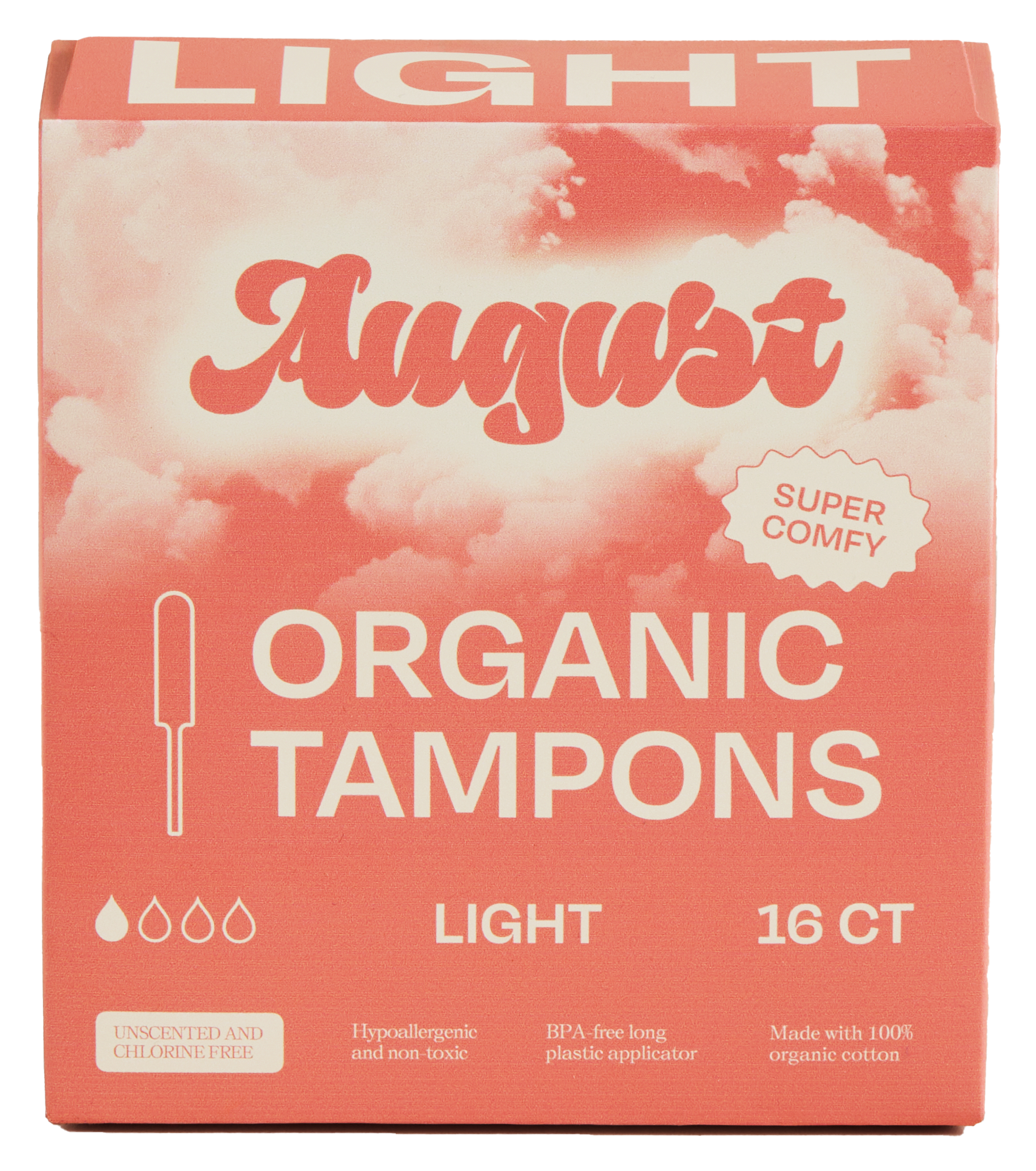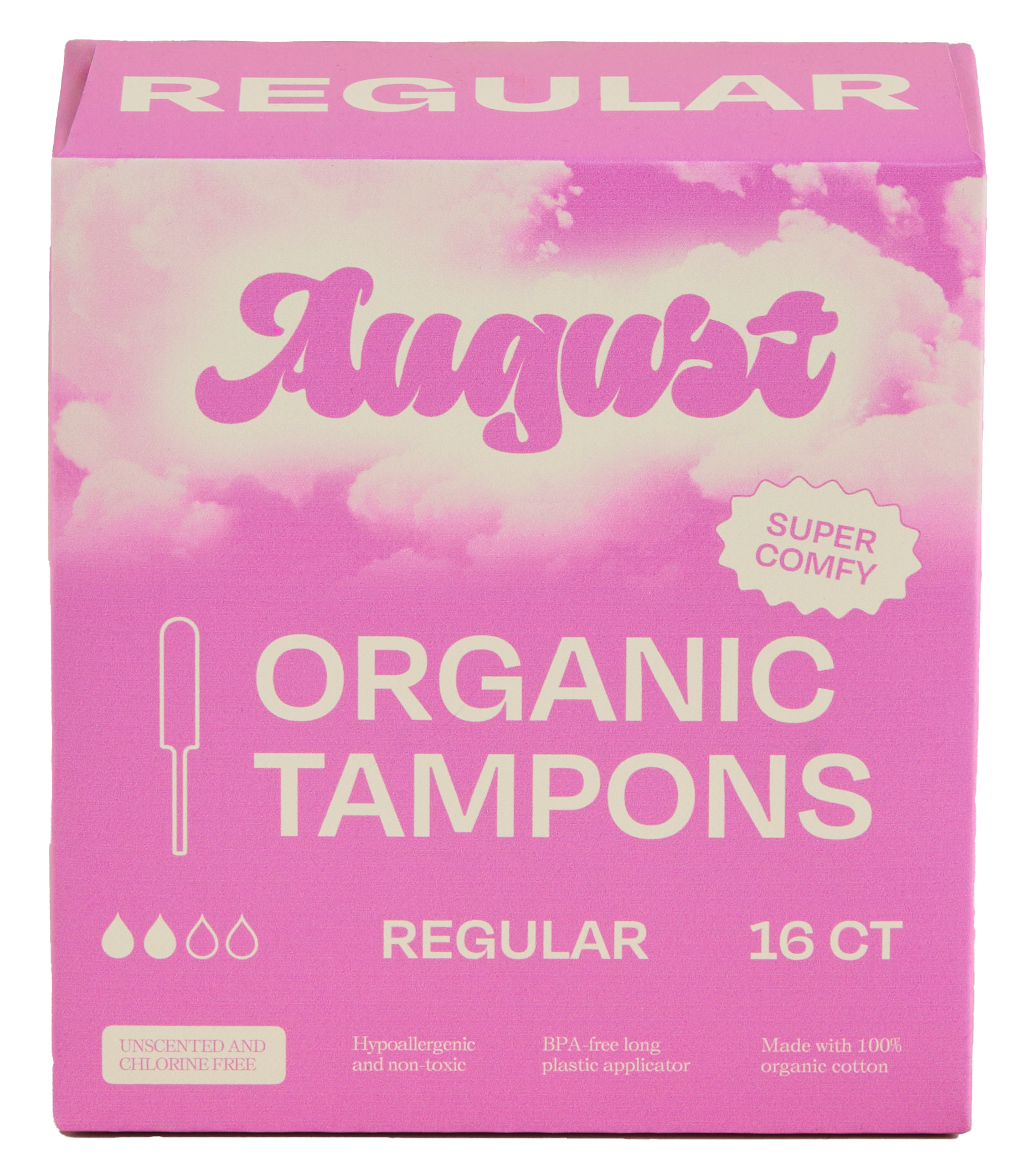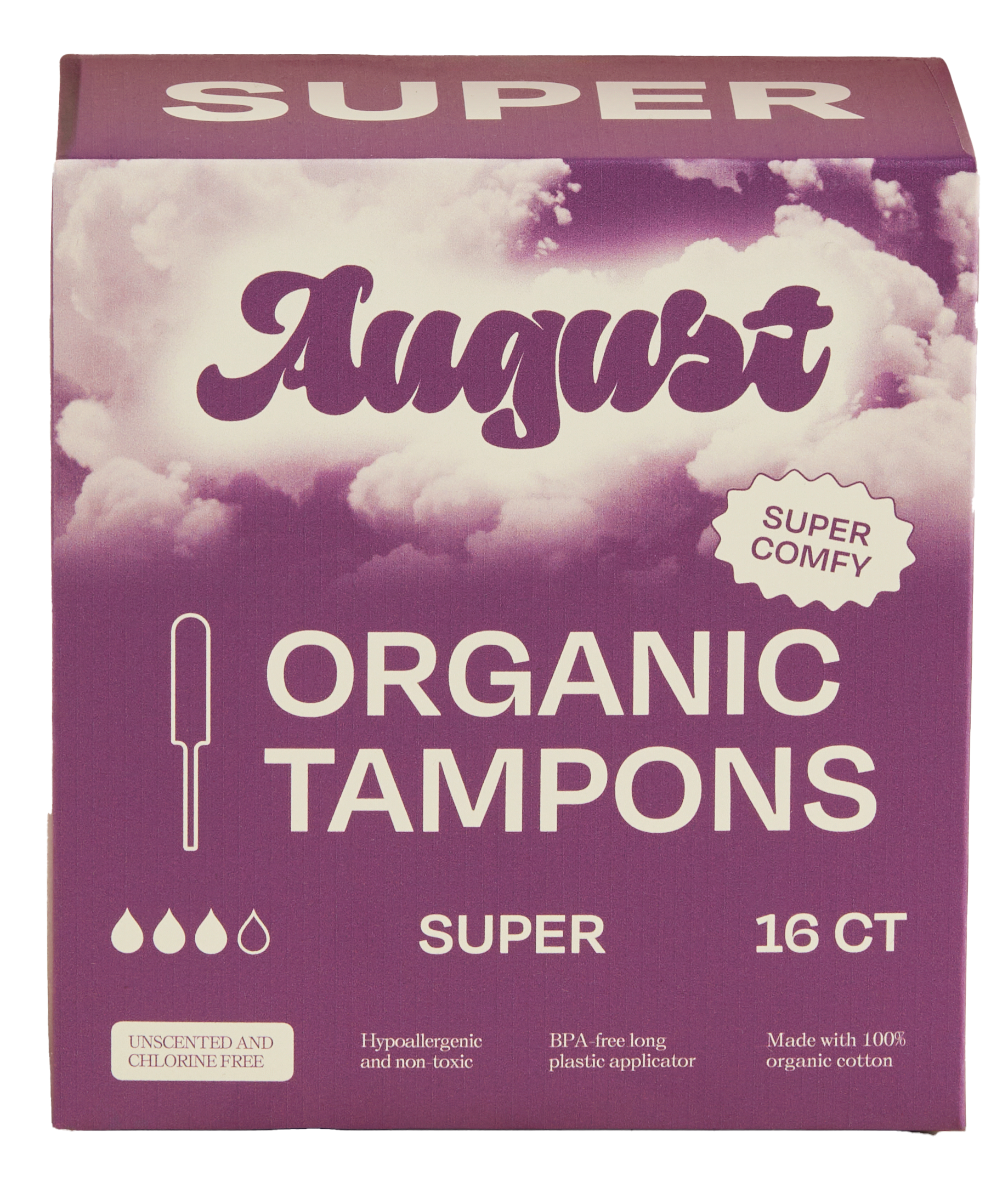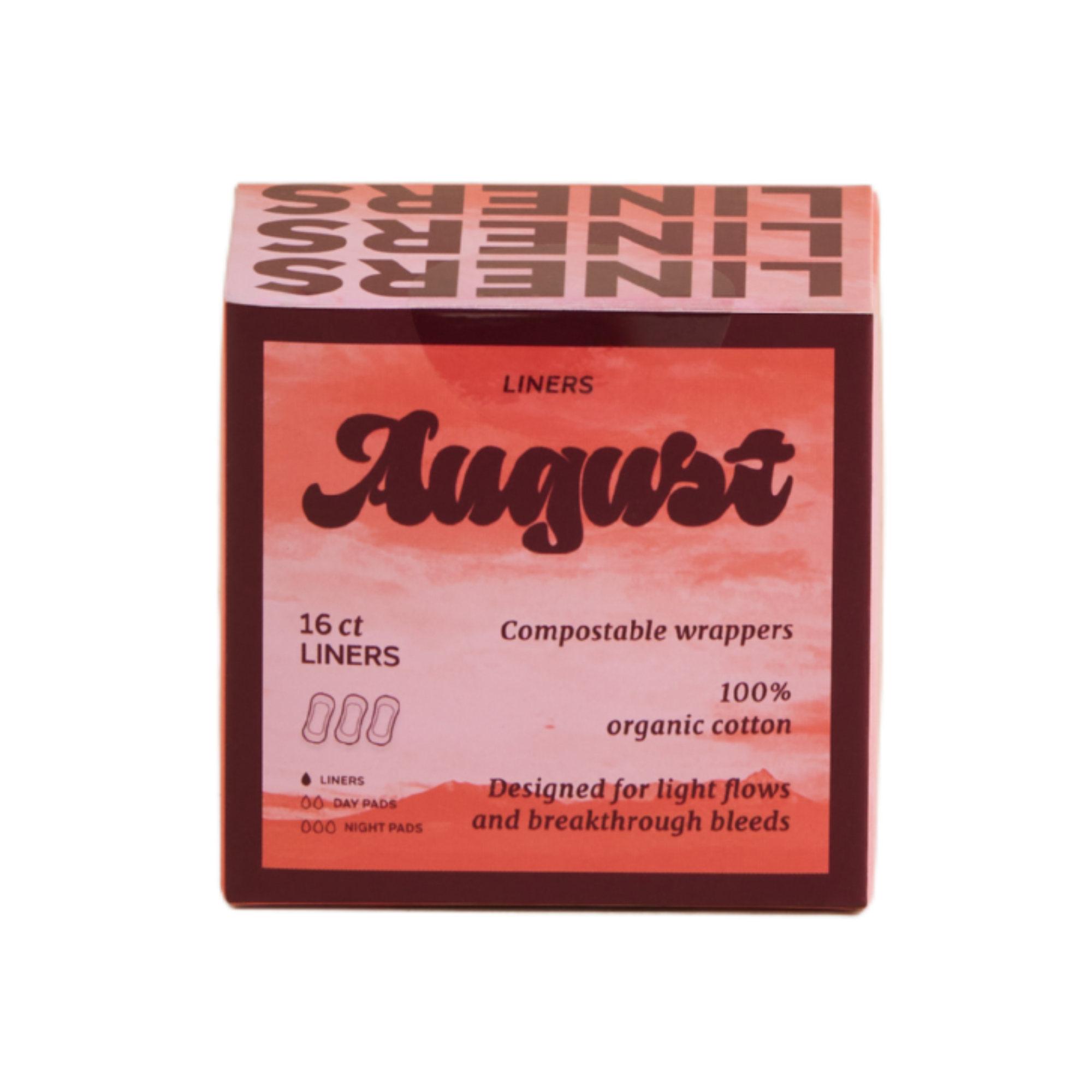April is PMDD Awareness Month!
The Inner Cycle has a lot of questions to #AskAugust about the experience of having PMDD.
So, we sat down with two August Medical Board members: Dr. Sarah Oreck (she/her), MD, MS, Reproductive Psychiatrist, and Israa Nasir (she/her), MHC Therapist to get verified answers to your questions.
Let’s get into it!
What is PMDD?
Premenstrual dysphoric disorder (PMDD) is a severe form of PMS.
5% of menstruators experience PMDD.
What is the difference between PMS and PMDD?

PMDD vs PMS is a common debate…they’re not exactly the same, however, the symptoms are similar.
The difference is that PMDD symptoms regularly occur at a severity that is enough to interfere with work, social activities, and relationships. PMS can have severe symptoms, but they usually pass or are easier to get over.
What are the 11 symptoms of PMDD?

- Mood swings, sudden sadness, increased sensitivity to rejection
- Anger, irritability
- Sense of hopelessness, depressed mood, self-critical thoughts
- Tension, anxiety, feeling on edge
- Difficulty concentrating
- Change in appetite, food cravings, overeating
- Diminished interest in usual activities
- Easy fatigability, decreased energy
- Feeling overwhelmed or out of control
- Breast tenderness, bloating, weight gain, or joint/muscles aches
- Sleeping too much or not sleeping enough
How long does PMDD usually last?
PMDD symptoms usually flare up during the luteal phase of your cycle (aka the 1-2 weeks before the start of your menstrual period) and typically resolve at the time of flow.
What is PMDD caused by?
It isn’t entirely clear. According to Dr. Oreck, research suggests that, it’s not that menstruators vulnerable to premenstrual mood changes have abnormal levels of hormones or some type of hormonal dysregulation. But instead, these menstruators are particularly sensitive to the cyclical hormonal changes that the average menstruator is going through. There is more and more evidence that changing levels of estrogen and progesterone have effects on neurotransmitters (aka chemical messengers in the body). It is possible that menstruators with PMS and PMDD may have abnormal serotonin neurotransmitter levels, and a smaller amount of serotonin receptors. This has been connected to symptoms of lower mood, irritability and increased food cravings.
Does PMDD happen every period and does it go away?
Sorry bestie but PMDD usually does occur during every menstrual cycle.
Good news: PMDD will go away once you no longer experience menstrual cycles...eek.
So, until then (aka pregnancy, menopause or loss of period for another reason), we're here to support you in navigating and managing your symptoms.
Keep reading to find out premenstrual dysphoric disorder treatment options!
What hormone imbalance causes PMDD?
It’s not that menstruators vulnerable to premenstrual mood changes have abnormal levels of hormones or some type of hormonal dysregulation. But instead, these menstruators are particularly sensitive to the cyclical hormonal changes that the average menstruator is going through.
Is PMDD genetic?

A family history of premenstrual dysregulation (any significant mood symptoms in the 1-2 weeks before their period) can increase the risk of PMDD.
Is PMDD caused by trauma?

Unfortunately, we don’t have enough research to outright say that trauma causes PMDD, but some studies (Pilver et al., 2011 & Bertone-Johnson et al., 2006) do show that there is an association between a history of trauma and PMDD.
Menstruators who are predisposed to PMDD may be more vulnerable to develop post traumatic stress disorder (PTSD) possibly due to altered cortisol levels (the stress hormone that triggers fight or flight) or maybe as a result of increased inflammation.
How do you test for PMDD?

Currently there are no tests that can be performed to diagnose PMDD.
Instead, PMDD is a clinical diagnosis based on the timing and symptoms. Monthly mood charting is often one of our best tools in confirming the diagnosis.
Does PMDD get worse with age?
PMDD symptoms typically show up when menstruators are in their 20s, though some people may start to experience symptoms as teens.
Some of these symptoms may worsen over time – it may even be as late as menopause that the symptoms get worse.
Is there anything that can make PMDD worse?
Take note: Alcohol, nicotine, caffeine, processed foods high in sugar and sodium can make PMDD symptoms worse.
What is the best treatment for PMDD?
It’s not about what is the best treatment, it’s about what is the best treatment for you.
Dr. Oreck likes to start her treatment plans by recommending lifestyle modifications, supplements and herbal remedies. Depending on the intensity of symptoms, some menstruators might require psychotherapy and medication interventions.
The most commonly used medications include hormonal birth control and selective serotonin reuptake inhibitors (SSRIs – you might know these as a type of antidepressants).
Can PMDD be treated without medication? What are natural remedies for PMDD?

Good news, yes, there are some natural remedies to help with the symptoms of both PMDD & PMS!
Decreasing...
- alcohol
- nicotine
- caffeine
- sugar
- and sodium intake
Increasing...
- fruits
- vegetables
- and whole grains
In addition...
- keeping a monthly mood chart can actually help confirm the diagnosis of PMDD and could be therapeutic.
- increasing regular body movement and getting enough sleep are good for PMDD symptoms (and general health!).
A few over-the-counter remedies for PMDD are:
- calcium
- vitamin B6 supplements
- chasteberry or vitex agnus castus fruit extract
Although you can start some lifestyle modifications on your own, remember to consult with your doctor before starting any new vitamins or supplements.
Does birth control help PMDD?
Studies on oral contraceptives (OCPs) to treat PMS and PMDD have been mixed.
Birth control helps some menstruators with PMDD but others can sometimes experience worsening of their symptoms on hormonal forms of birth control.
One thing to also note is that different OCPs have different responses in every person, so work with your doctor to find one that works for you.
What are some tips to feeling better during PMDD symptoms?

Know that you are not alone! PMDD is probably underdiagnosed and underdiscussed.
Start with mood charting so that you can see if there is a connection between your cycle and your mood symptoms, as well as some of the lifestyle changes.
Know that there are many interventions that can be helpful and that, in time, you will get to know the connection between your body & your mind. You can use this information to help stay organized and prepared for any symptoms.
Is PMDD considered a mental illness?
Dr. Oreck agrees that it’s not good for anyone to use pathologizing terminology for any mental health issue or challenge.
No matter what it’s called – mental illness or challenge – it’s important to highlight how much PMDD can impact functioning and how serious it can be for many menstruators.
Is PMDD the same as Bipolar Disorder?
No. Bipolar disorder is a mood disorder that is characterized by episodes of mania and major depression that last weeks to months.
Although one of the symptoms of PMDD is mood swings, these are very different conditions and the mood swings in PMDD do not reach the severity of mania, hypomania or major depressive disorder.
Will PMDD make other mental health challenges worse?
There can definitely be a worsening of other mental health challenges in the luteal phase or 1-2 weeks before the beginning of your flow.
If you struggle with this, it can be helpful to become aware of the different phases of your cycle and track any patterns that come up.
If you are struggling with mental health...
If you are struggling with mental health, and are a person with a period, definitely check in with a doctor, and start keeping track of any symptoms of PMDD that you might be experiencing.
Once you get that diagnosis, you’ll have a way better understanding of how to manage your big feelings, and keep living your life.
Stay tuned for some Mental Health Awareness Month chats on our Instagram with both Dr. Oreck & Israa in May!
Sources
Verified by both Dr. Sarah Oreck (she/her), MD, MS, Reproductive Psychiatrist, and Israa Nasir (she/her), MHC Therapist.
Winer, S. A., Rapkin, A. J. (2006). Premenstrual disorders: prevalence, etiology and impact. Journal of Reproductive Medicine; 51(4 Suppl):339-347
Pilver CE, Levy BR, Libby DJ, et al. Posttraumatic stress disorder and trauma characteristics are correlates of premenstrual dysphoric disorder. Arch Womens Ment Health. 2011;14(5):383-393.
Bertone-Johnson ER, Whitcomb BW, Missmer SA, et al. Early life emotional, physical, and sexual abuse and the development of premenstrual syndrome: a longitudinal study. J Womens Health (Larchmt). 2014;23(9):729-739.






